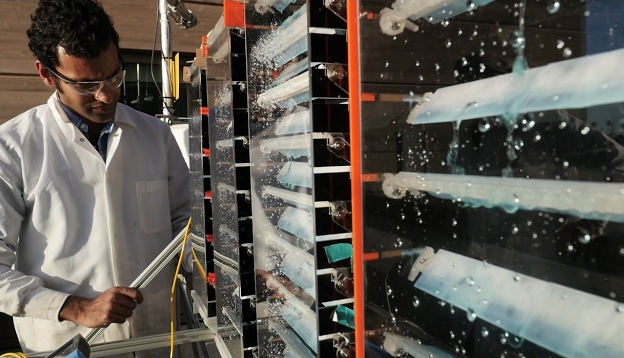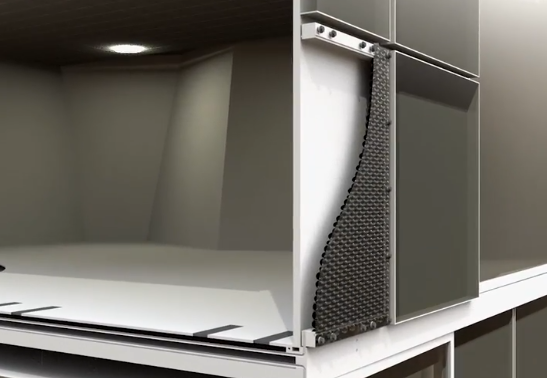Transformational Building Design Energizes Water Recycling
Published on by Naizam (Nai) Jaffer, Municipal Operations Manager (Water, Wastewater, Stormwater, Roads, & Parks) in Technology
Multidisciplinary engineering team designs new solar-paneled walls that make greywater reusable and a source of thermal heat.

Architect Maria Paz Gutierrez is a woman on a mission. In addition to mentoring student building designers at the University of California (UC), Berkeley, Paz Gutierrez is putting her own design skills to work to address a key environmental and socioeconomic issue around the world--water scarcity.
Together with environmental engineer Slav Hermanowicz and bioengineer Luke Lee, Paz Gutierrez is hoping to take the recycling of wastewater from sinks, baths and laundry, known as greywater, to a whole new level.
With support from the National Science Foundation (NSF), the multidisciplinary team is engineering solar panel technology that makes greywater reusable while creating thermal energy in the process. What is now wastewater would be used at least twice, cutting demand, and the free solar energy can be captured as well. The greywater isn't clean enough to drink, but it's fine for flushing toilets or washing clothes.

"This is the future of sustainable building systems--synergistic optimization processes that are win-win from the local to the global scales," explains Paz Gutierrez. "The end user benefits because they're using less water and paying less for electricity or gas; the community benefits because it has less water to treat; the environment benefits because we're not going to be contaminating aquafers. That's the fundamental difference between this design and other building systems."
Read more at: National Science Foundation
Media
Taxonomy
- Water Reuse & Recycling
- Industrial Water Reuse
- Reuse
- Grey Water
- Building Design
- Green Building
- Sustainable Building
1 Comment
-
China will need this urgently